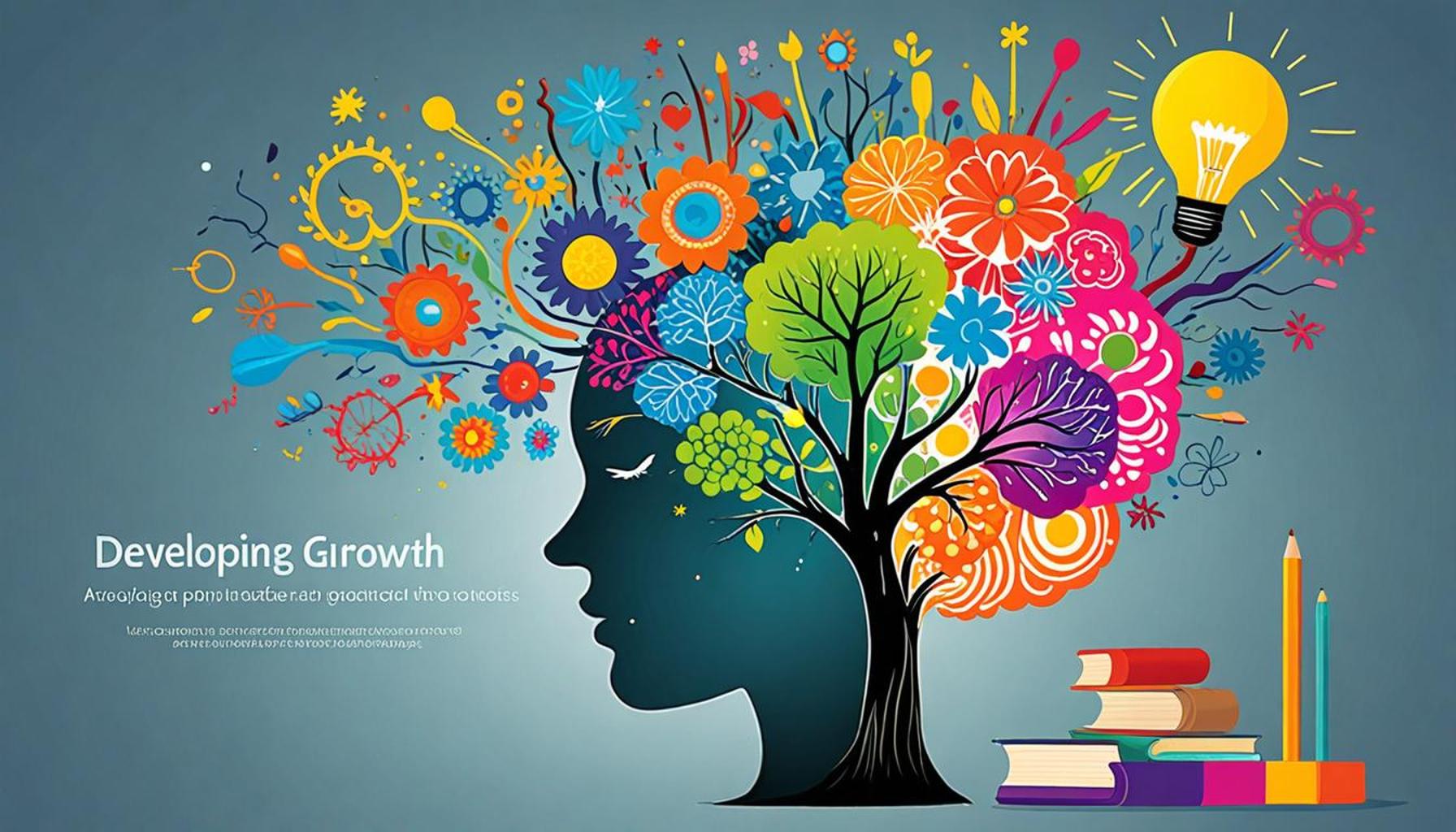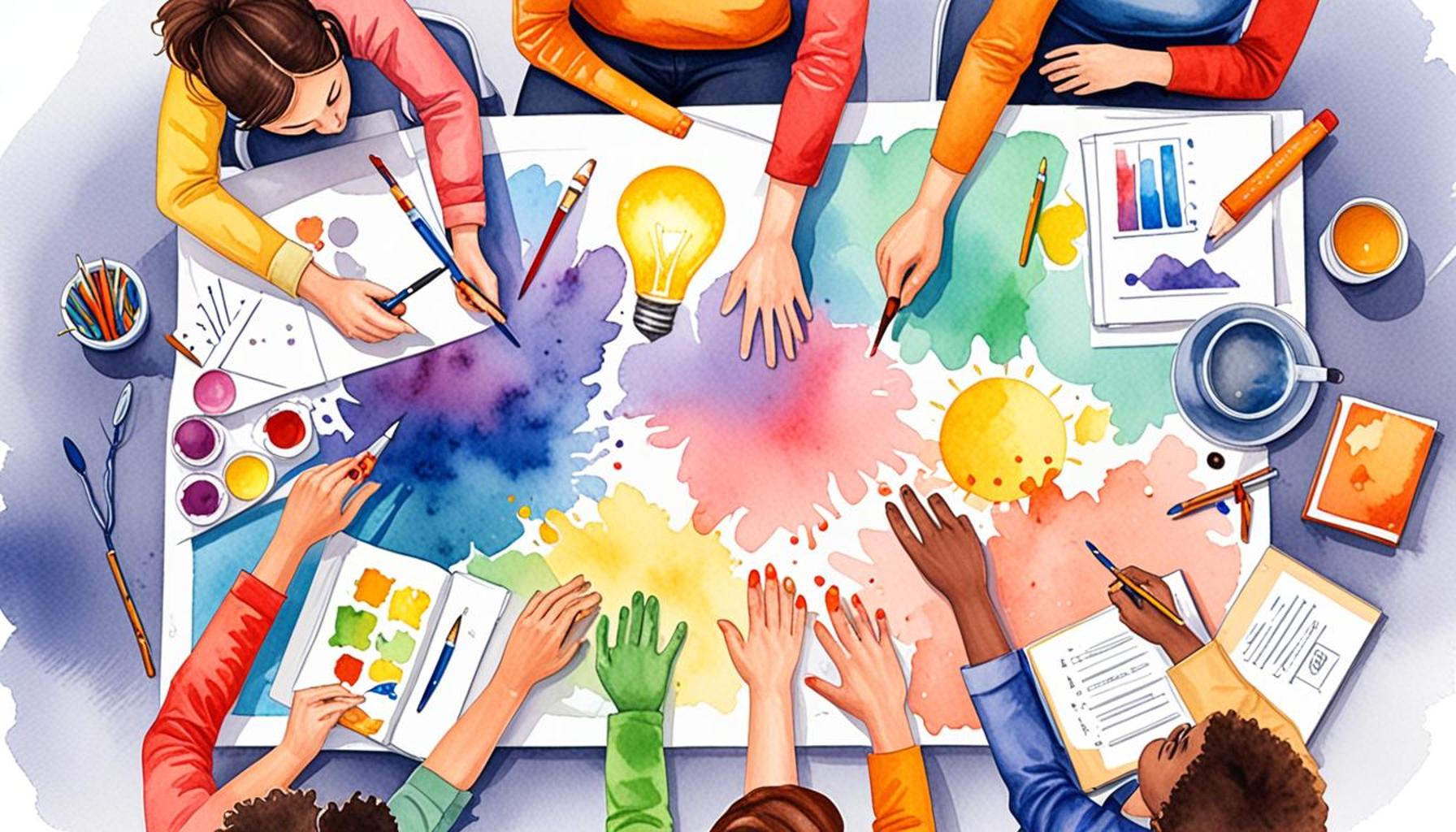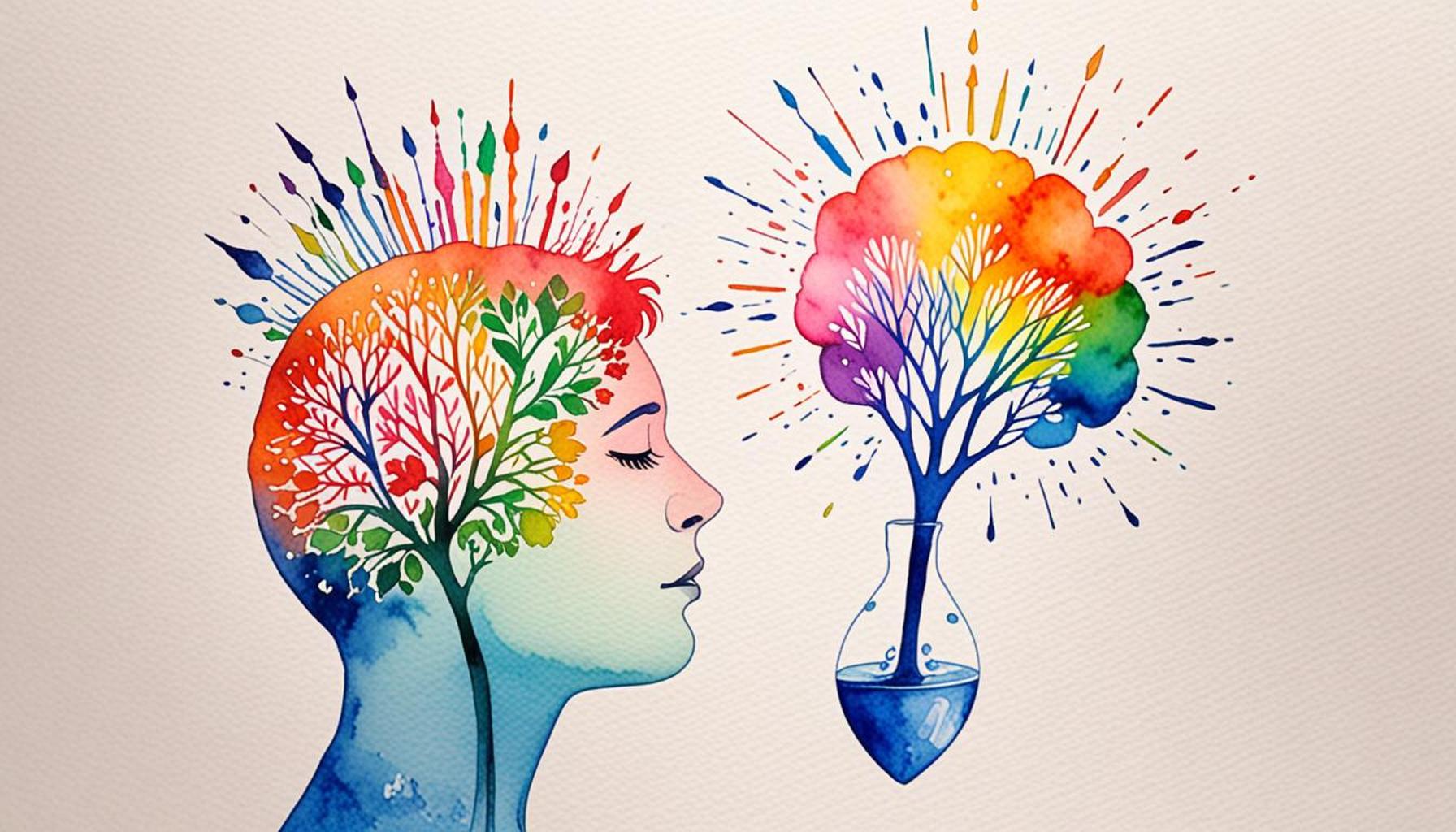Developing a Growth Mindset Through Reflective Practice in Educational Contexts

The Importance of Growth Mindset
In today’s rapidly changing educational landscapes, promoting a growth mindset has become essential for both students and educators. This concept goes beyond mere academic success; it fosters resilience, adaptability, and a lifelong passion for learning that is crucial in overcoming challenges both in school and in life.
One significant component that contributes to nurturing this mindset is reflective practice. This approach encourages individuals to:
- Evaluate their experiences critically: By taking time to reflect on their actions, students and educators can gain insights into what strategies worked well and which did not.
- Identify learning opportunities in failures: Facing challenges can be daunting, but viewing failures as stepping stones to success allows learners to experience growth.
- Adapt strategies based on past performances: Continuous improvement relies on understanding previous outcomes and adjusting tactics accordingly.
Reflective Practice in the Nigerian Context
In the context of Nigerian education, the advantages of reflective practice are especially pronounced. This approach aligns with the cultural values of communal learning and personal development intrinsic to Nigerian society. It encourages students and educators to:
- Engage in discussion and collaboration: Traditional practices such as group learning and peer tutoring are prevalent, allowing students to benefit from diverse perspectives and collective wisdom.
- Share feedback constructively: Feedback is not merely an evaluation tool; it is a crucial part of the growth process, fostering an environment where everyone feels encouraged to improve.
- Support each other’s growth journeys: In Nigerian communities, there’s often a strong emphasis on mentorship and collaboration, further underpinning the development of a growth mindset.
The Transformative Power of a Growth Mindset
The impact of adopting a growth mindset through reflective practice is profound. As educators and students start to embrace this philosophy, we can anticipate:
- Enhanced student engagement: Students who feel supported in their learning are more likely to participate actively in class discussions and initiatives.
- Increased academic performance: When individuals focus on growth, rather than just outcomes, they are more likely to develop critical thinking skills and the tenacity to tackle challenging subjects.
- A more inclusive and supportive learning environment: A focus on growth fosters inclusivity, where every student’s progress is valued.
Reflective practice creates a safe space for exploration and inquiry, allowing the educational landscape in Nigeria to flourish. In the following sections, we will explore various methods and strategies to effectively integrate reflective practice within educational frameworks. Ultimately, this integration can pave the way for a thriving culture of growth, one that nurtures not just academic achievement but holistic development.

Join us as we delve deeper into the nuances of fostering this crucial mindset in schools, communities, and beyond, encouraging both past and future generations to embrace learning with open minds and resilient spirits.
YOU MAY ALSO LIKE: Read read another article
Understanding Reflective Practice
Reflective practice is not just a buzzword in contemporary education; it is a vital process that empowers students and educators alike to thrive in their learning journeys. In essence, reflective practice involves the thoughtful consideration of experiences, embracing both successes and setbacks as opportunities for growth. For many Nigerian educators, integrating reflective practice into their pedagogical methods can revolutionize the way students approach learning.
Research has shown that reflective practice is integral to developing a growth mindset. According to a study conducted by Stanford University Professor Carol Dweck, who pioneered the concept of growth mindset, individuals who regularly engage in reflection demonstrate enhanced problem-solving abilities and greater resilience in the face of challenges. This engagement leads to a deeper understanding of their learning processes, allowing students to take ownership of their educational experiences.
Key Elements of Reflective Practice
To effectively implement reflective practice within the classroom, it is crucial to understand its core components. These elements include:
- Self-awareness: Encouraging students to become aware of their own thinking patterns and emotional responses allows them to critically assess how these factors influence their learning.
- Inquiry: Engaging in reflective questioning, such as “What did I learn from this experience?”, prompts students to analyze their actions and the outcomes that resulted.
- Feedback incorporation: Actively seeking and implementing feedback fosters a culture of continuous improvement, empowering learners to make informed adjustments to their approaches.
- Action planning: Developing concrete plans based on insights gained through reflection helps students set realistic goals for themselves, ensuring they remain on a path of progress.
In Nigerian classrooms, traditional educational models often rely heavily on rote learning, which may stifle opportunities for critical thinking and collaboration. By integrating reflective practice, educators can shift the dynamics of learning environments. This shift promotes deeper collaboration, encourages peer feedback, and enables students to embrace challenges rather than shy away from them.
Moreover, the collective practice of reflection—a cultural norm in many Nigerian communities—aligns seamlessly with the objective of fostering a growth mindset. Teachers can initiate reflective discussions in their classrooms, creating spaces where students feel comfortable voicing their experiences and insights. Such practices can lead to the development of strong communal ties among learners, as they celebrate one another’s growth while navigating the complexities of education together.
As we explore practical methods for integrating reflective practice in Nigerian educational contexts, it becomes clear that this approach does more than foster individual growth; it builds a resilient learning community that thrives on shared experiences and collective progress. Ultimately, this will pave the way for a robust educational ecosystem that nurtures creativity, independence, and a lifelong pursuit of knowledge.
| Category | Benefits |
|---|---|
| Self-Reflection | Encourages students to critically analyze their learning processes and challenges. |
| Resilience Building | Promotes tackling challenges head-on, fostering a stronger drive to overcome obstacles. |
| Feedback Utilization | Teaches learners to embrace constructive criticism as a tool for growth. |
| Goal Setting | Facilitates the setting of realistic, achievable goals for continuous improvement. |
Incorporating reflective practice in educational contexts not only establishes a strong foundation for a growth mindset but also creates an environment ripe for substantial learning and personal development. When learners engage in self-reflection, they actively identify their strengths and weaknesses, which equips them to take charge of their educational journey. Moreover, fostering resilience is key; students who face their academic hurdles with a growth mindset are more likely to persist and succeed. This aligns perfectly with the principles of feedback utilization—wherein students learn to view feedback not as judgment, but as a vital resource for improvement.Additionally, effective goal setting emerges as a crucial aspect of this growth process, encouraging learners to integrate feedback into tangible objectives that pave the way for their continuous advancement. This dynamic interplay among self-reflection, resilience, feedback, and goal setting forms the cornerstone of developing a growth mindset in educational environments, significantly transforming how individuals approach learning.
CHECK OUT: Click here to explore more
Embedding Reflective Practice in Curriculum Design
To truly cultivate a growth mindset through reflective practice in Nigerian educational contexts, it is essential to embed these principles into the very fabric of curriculum design. By creating a curriculum that actively facilitates reflection, educators can encourage students to not only absorb information but also to deeply engage with it. This leads to more meaningful learning experiences that contribute to intrinsic motivation and self-directed learning.
One effective strategy is incorporating reflection journals into daily learning activities. These journals can act as personal spaces where students record their thoughts, insights, and feelings about lessons. For instance, after a challenging mathematics problem-solving session, students can write about the strategies they employed, what worked, and what didn’t. This promotes a culture where struggling is seen as a natural part of the learning process, reinforcing the concept that effort and persistence lead to improvement.
Utilizing Collaborative Learning
Another powerful method for promoting reflective practice is through collaborative learning. Group projects and peer-review sessions not only enhance academic dialog but also create opportunities for students to engage in mutual reflection. In a Nigerian context, where communal relationships are valued, this approach is particularly resonant. For example, students can work in pairs to discuss their reflections on a shared text, critiquing each other’s understanding and building on insights together. This process encourages them to appreciate diverse viewpoints while also fostering a sense of shared responsibility for learning.
Moreover, integrating reflective practice into teacher training programs is crucial for fostering an educational culture that emphasizes growth mindsets. By preparing teachers to model reflection, they reinforce these values through their teaching. Numerous teachers across Nigeria are already adopting practices such as micro-teaching and action research, where they reflect on their own teaching strategies to improve effectiveness and enhance student engagement.
Leveraging Technology for Reflection
In the digital age, technology can also play a pivotal role in supporting reflective practices. Online platforms enable students to share their reflections in a broader community, transcending geographical limitations. Digital tools like blogs or discussion forums can serve as platforms for students to articulate their reflections, receive feedback, and provide insights to peers. This not only nurtures a growth mindset but also prepares students for the increasingly collaborative nature of today’s workplaces.
Educational institutions in Nigeria could take this a step further by incorporating digital portfolios, where students could curate evidence of their learning journey, including reflections, feedback, and other artifacts. These portfolios can eventually serve as powerful tools for self-assessment, allowing students to visualize their growth over time and motivate them to set higher objectives as they progress.
Ultimately, by weaving reflective practice throughout the curriculum, engaging both students and teachers, and leveraging technology to enhance these experiences, Nigerian educational contexts can significantly shift towards fostering a robust growth mindset. This not only transforms individual learners but has the potential to reshape educational outcomes on a national scale, cultivating a generation that is resilient, innovative, and exceptionally well-prepared for the challenges of the future.
RECOMMENDED: Check out this similar article
Conclusion: Transforming Education Through Reflective Practice
In summary, the journey toward developing a growth mindset in Nigerian educational contexts hinges on the integration of reflective practice within curriculum design and classroom dynamics. By embedding opportunities for reflection, such as personal journals and collaborative learning experiences, educators can cultivate a culture that celebrates learning as a continuous process rather than a destination. This shift not only fosters resilience among students but also empowers them to embrace challenges and understanding their own learning paths.
Furthermore, the role of technology in enhancing reflective practices cannot be overstated. Utilizing digital tools enables students to share insights across wider audiences, enriching their learning experiences while protecting and promoting local culture. Implementing digital portfolios allows learners to showcase their growth visibly, motivating them to set higher goals and achieve greater academic outcomes.
Ultimately, effective teacher training focused on reflective techniques ensures that educators are well-equipped to model and promote these principles. As a result, this approach has the potential to transform educational outcomes on a larger scale, fostering a generation of individuals who are not only academically capable but also adaptive, innovative, and prepared to tackle future challenges. By prioritizing reflective practice, we can help nurture students who are lifelong learners, equipped with a resilient mindset and the capacity to thrive in an ever-evolving world.
Investing in reflective practices is, therefore, an urgent necessity for transforming Nigerian education. The future of our students and, consequently, the nation depends on our commitment to this innovative pedagogical shift.


